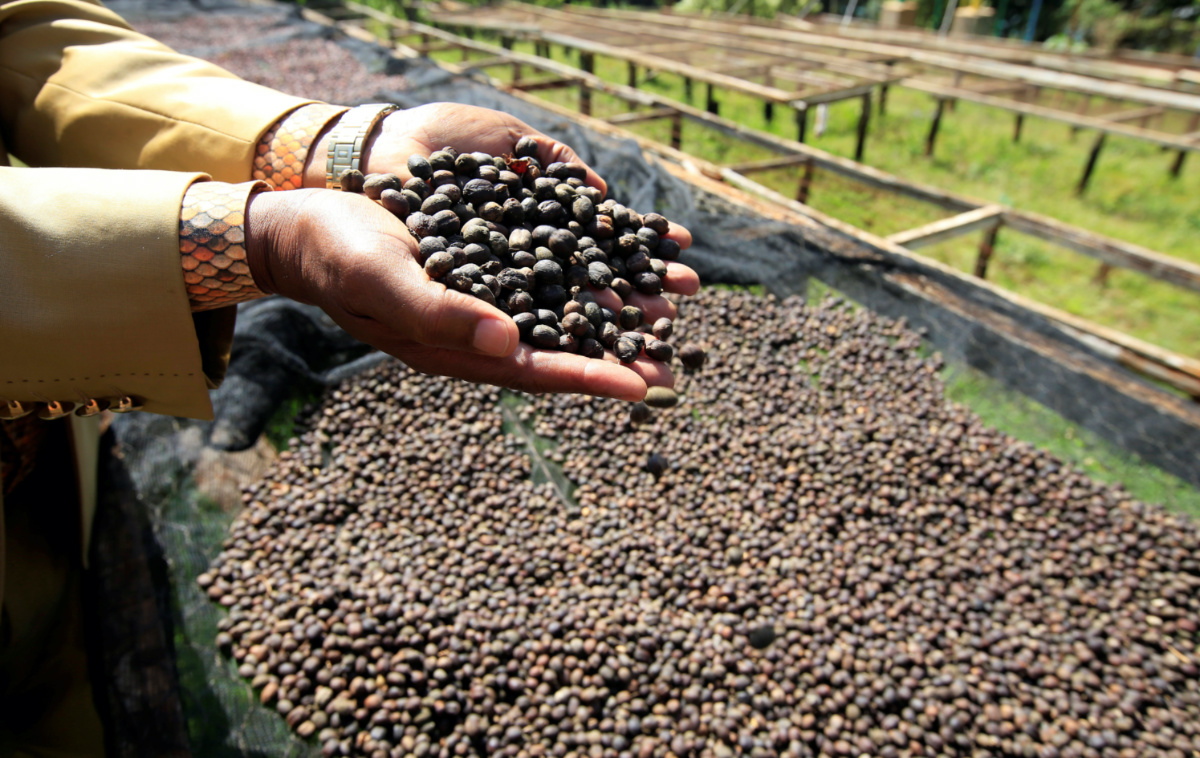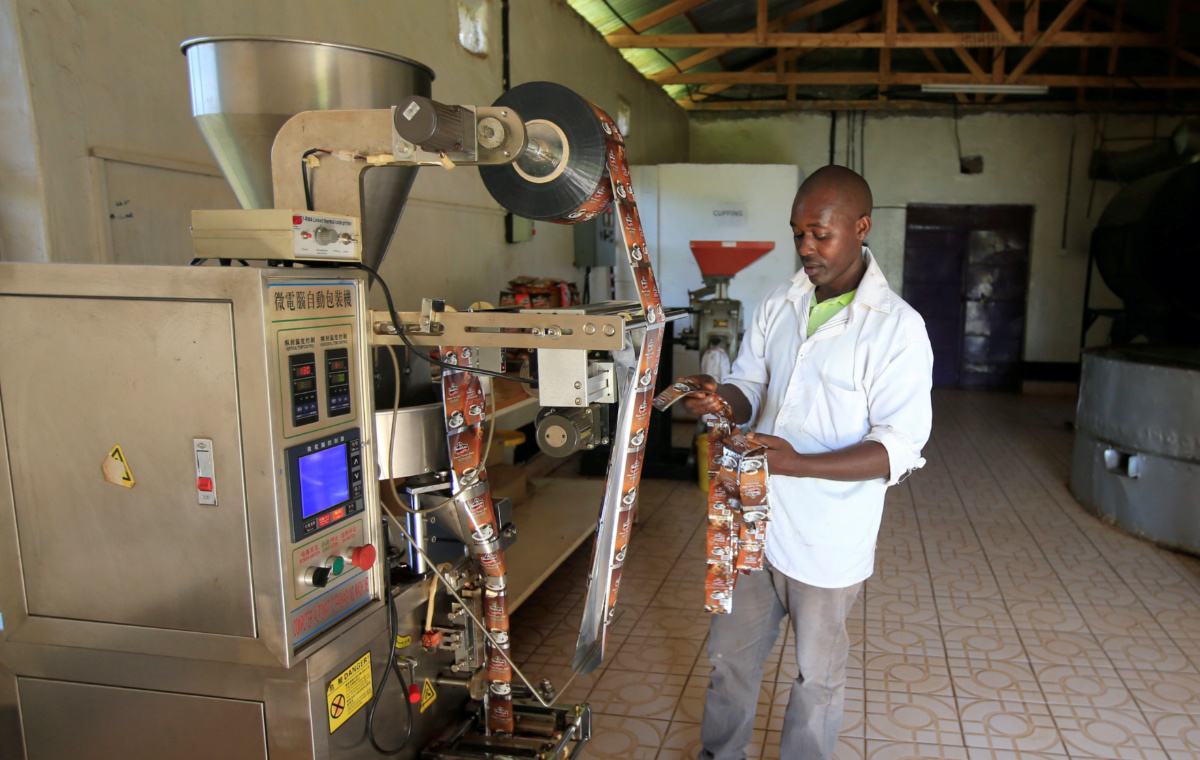
DUNCAN MIRIRI, of Reuters, reports on how a push to create a domestic market for coffee could help Kenyan farmers…
Nyeri, Kenya
Reuters
Kenyan butcher David Mwangi likes to start his day with a mocha or a cappuccino at a newly opened coffee shop in his area – the first such outlet in a farming town where a sweet, milky cup of tea is the way most people start the day.
“Coffee helps my mind to wake up. The taste is sweet,” the 27-year-old said, while sipping the beverage at the outlet owned by Kilele Coffee Company in Karatina town, which is about 120 kilometres from the capital, Nairobi.

A worker holds coffee berries as they to sundry at the Bradegate coffee factory in Karatina near Nyeri, Kenya, on 3rd June. PICTURE: Reuters/Monicah Mwangi.
The small coffee chain – which has six outlets in central Kenya – was founded last year by Joshua Kariuki, who returned home to Nyeri town after 15 years as an aid worker, including in South Sudan.
He hopes Kilele will add profit and value for local farmers as it relies on them for the supply of raw coffee.
“We want to have a coffee drinking culture at the local level.”
– Joshua Kariuki, founder of Kilele Coffee Company in Karatina town.
“We want to have a coffee drinking culture at the local level,” Kariuki said.
A booming domestic market could nurture a new generation of farmers in a flagging industry, said Matthew Harrison, an Amsterdam-based buyer at specialty coffee sourcing company Trabocca.
Kenya’s coffee production peaked at 129,000 tonnes three decades ago but has dropped to around 40,000 tonnes due to poor management, global price swings and climate change.
Now the East African country accounts for just one per cent of the global crop, but its high-quality arabica beans are sought after by roasters for blending with other varieties.
Demand at home for the beans is rising, as newly minted members of the urban middle class and even those in the countryside develop a taste for specialty coffee.
Kenyans consume just five per cent of total output, compared with neighbouring Ethiopia, where domestic consumption accounts for nearly half of production, thanks to a strong coffee drinking culture.
But the local consumption in Kenya has tripled to 1,500 metric tonnes per year in the past decade, figures from the global business data portal, Statista, showed.
That benefits farmers like Thuo Mathenge, who closed his medical business in the Kenyan capital Nairobi to return to his village a decade ago. He now processes beans from his sprawling coffee farm at the base of Mount Kenya and sells the product in his retail outlets.

Bradegate coffee factory manager Ephraim Maina sorts coffee sachets after sealing at the factory in Karatina near Nyeri town, Kenya, on 3rd June. PICTURE: Reuters/Monicah Mwangi
Mathenge attributed the rise in Kenyan coffee culture to the growing knowledge of the beverage’s potential benefits, including triggering alertness and boosting energy.
He produces more than 50 tonnes of coffee a year, and the proportion of the coffee he sells locally has doubled to 60 per cent from 30 per cent seven years ago. The rest goes to the United States, Britain and Belgium.
His organically grown, processed coffee fetches 2,000 shillings ($US18.49) a kilo, compared with the less than 100 shillings that most small-scale farmers in the area get for their raw coffee abroad, thanks to the fact that he does not use chemicals in growing.
“Coffee is gold,” he said, adding that he is planting more coffee trees on a separate 20 acre piece of land.





